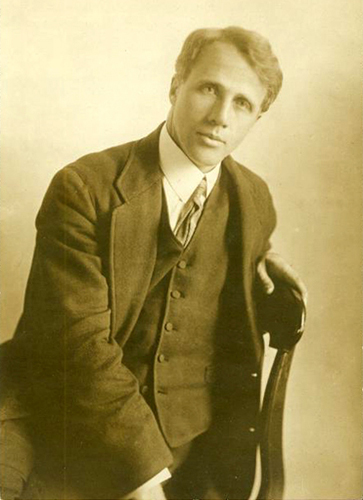One Art
BY PROF. VAROL AKMAN
I have learned that when a newborn child squeezes for the first time with her tiny fist her father's finger, she has him trapped forever.
This sappy line touches a chord. I have two daughters, and hence I've experienced the aforesaid feeling precisely twice. That's perhaps why I liked this line so much when I first noticed it on the Web some years ago. It was supposed to have been excerpted from a farewell poem by the Colombian author Gabriel García Márquez, winner of 1982 Nobel Prize in Literature. But the actual story turned out to be a bit more complicated than that.
During the summer of 1999, García Márquez (b. 1928) was being treated for a serious ailment. In the media, there were constant reports about his failing strength. In spring 2000 the rumors appeared to be corroborated when a poem that was attributed to him appeared in La Republica, a Peruvian newspaper. The poem was "La Marioneta" ("The Puppet"), a sentimental leave-taking piece that García Márquez had allegedly written. However, it soon became obvious that he was recovering from his illness, and furthermore, that he had not penned the poem. The poem turned out to be the work of an obscure ventriloquist. (As for Gabo, he is alive and well. Here's a genuine quote from his 2007 novella "Memories of My Melancholy Whores": "I discovered that my obsession for having each thing in the right place, each subject at the right time, each word in the right style, was not the well-deserved reward of an ordered mind but just the opposite: a complete system of pretense invented by me to hide the disorder of my nature.")
media, there were constant reports about his failing strength. In spring 2000 the rumors appeared to be corroborated when a poem that was attributed to him appeared in La Republica, a Peruvian newspaper. The poem was "La Marioneta" ("The Puppet"), a sentimental leave-taking piece that García Márquez had allegedly written. However, it soon became obvious that he was recovering from his illness, and furthermore, that he had not penned the poem. The poem turned out to be the work of an obscure ventriloquist. (As for Gabo, he is alive and well. Here's a genuine quote from his 2007 novella "Memories of My Melancholy Whores": "I discovered that my obsession for having each thing in the right place, each subject at the right time, each word in the right style, was not the well-deserved reward of an ordered mind but just the opposite: a complete system of pretense invented by me to hide the disorder of my nature.")
Why this lengthy prologue? Well, my older daughter recently wrote me an email and asked me to devote one of my columns to her favorite poems. They were, she said, "Hollow Men" and "Love and a Question." Now the T. S. Eliot poem is a long one, and hence is disqualified right away. But the Frost poem is reasonably short, so it would definitely be okay. In light of the bogus yet charming García Márquez quote above, I have to say that I really can't turn down my daughter's wish: I'm simply trapped!
A bit of trivia: In a 1969 article published in The New England Quarterly, Laurence J. Sasso Jr. noted that romantic involvement between a man and a woman constitutes one of Frost's chief concerns. On the other hand, checking the titles of the pieces in the "Complete Poems of Robert Frost," he observed that the word "love" is encountered only once, and that's in "Love and a Question."
NOTES
See http://www.museumofhoaxes.com/marquez.html for a detailed account of the "La Marioneta" prank. The poem is from Frost's first book, "A Boy's Will" (1915) and is available online at http://www.bartleby.com/117/4.html, copyright © Bartleby.com, Inc.
Undated photograph of the young Frost (1874-1963) is courtesy of the Manuscripts Division of Princeton University Library.
Love and a Question
A Stranger came to the door at eve,
And he spoke the bridegroom fair.
He bore a green-white stick in his hand,
And, for all burden, care.
He asked with the eyes more than the lips
For a shelter for the night,
And he turned and looked at the road afar
Without a window light.
The bridegroom came forth into the porch
With, 'Let us look at the sky,
And question what of the night to be,
Stranger, you and I.'
The woodbine leaves littered the yard,
The woodbine berries were blue,
Autumn, yes, winter was in the wind;
'Stranger, I wish I knew.'
Within, the bride in the dusk alone
Bent over the open fire,
Her face rose-red with the glowing coal
And the thought of the heart's desire.
The bridegroom looked at the weary road,
Yet saw but her within,
And wished her heart in a case of gold
And pinned with a silver pin.
The bridegroom thought it little to give
A dole of bread, a purse,
A heartfelt prayer for the poor of God,
Or for the rich a curse;
But whether or not a man was asked
To mar the love of two
By harboring woe in the bridal house,
The bridegroom wished he knew.